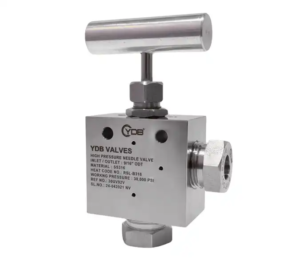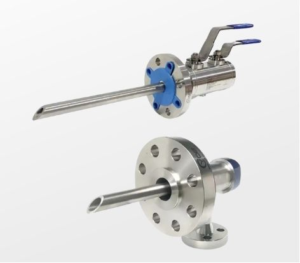In industries where precision flow control is critical, high-pressure needle valves and injection quill valves play an important role. Both are engineered to regulate and deliver fluids with accuracy, ensuring that systems maintain safety, efficiency, and reliability. Understanding their design features, material options, and applications helps industries choose the right valve for their needs.
Design Features of High-Pressure Needle Valves
High-pressure needle valves are designed with a slender, tapered point that fits into a matching seat. This configuration provides fine control over fluid flow, making it essential in applications where exact adjustments are required. Their ability to withstand high pressure without leakage makes them suitable for demanding environments such as oil, gas, and power generation systems.
Some needle valves are part of advanced instrumentation valve systems, ensuring precise measurement and control. Their versatility and precision make them a preferred option in industries that cannot afford inaccuracies.
Applications of High-Pressure Needle Valves
These valves are widely used in:
- Oil and gas operations requiring tight shut-off and precise flow control
- Chemical processing plants for handling corrosive or high-pressure media
- Industrial pipelines where safety and accuracy are critical
Their durability and ability to perform under extreme conditions also complement ball valves for pipeline systems and other precision-engineered valves used across industries.
Injection Quill Valves: Function and Benefits
Injection quill valves serve a different but equally important purpose. They are used to inject chemicals directly into pipelines, ensuring effective mixing and distribution. This is vital in processes such as water treatment, chemical dosing, and corrosion inhibition.
By safely introducing chemicals into the system, injection quill valves prevent localized damage to the pipe walls, extending the lifespan of the entire setup. When paired with forged steel valves or cast ball valves, they help maintain system reliability and efficiency.

Material Considerations
Both high-pressure needle valves and injection quill valves are available in different materials, including stainless steel, carbon steel, and exotic alloys. Material choice depends on the type of media, operating pressure, and temperature. For example:
- Stainless steel for corrosion resistance in chemical applications
- Forged steel for strength in high-pressure operations
- Specialized alloys for handling aggressive or hazardous media
Careful selection of materials ensures long-term performance and reduced maintenance needs.
Installation and Selection Tips
When selecting these valves, key considerations include:
- Operating pressure and temperature range
- Compatibility with pipeline materials and media
- Required level of precision and control
- Maintenance accessibility and safety standards
Pairing the right valve design with proper installation ensures optimal system performance and safety.
Conclusion
High-pressure needle valves and injection quill valves are integral to maintaining control, accuracy, and safety in industrial systems. Choosing the right type and material is essential for ensuring reliable, long-term performance.
Contact YDB Valves LLP Today
At YDB Valves LLP, we manufacture and supply a wide range of precision-engineered industrial valves, including high-pressure needle valves and injection quill valves. Our focus on quality, durability, and innovation ensures that your operations run with confidence.
Contact us today to discuss your requirements and find the right valve solutions for your system.






